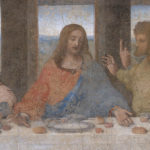
We remember that orientation and context are vital to focusing on meaning, motives, understanding and conduct in life. There are, for each of us, special nuances that press in on our thoughts, our conducts, convictions and procedures. These nuances may force interpretations. For example, a former special student, of more than fifty years ago, with whom I exchange ideas and mutual interests in faith, culture and discussion, raised the matter of equality of women with me. She wondered if one of my statements implied that the growth in the equality of women in society was negative – when I noted the decline in the male percentages in education and leadership. I felt no negative implication about women, and I am… Read more







